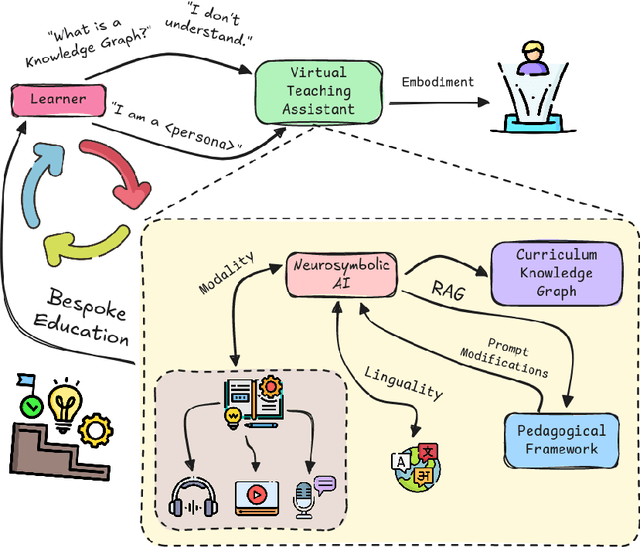Education in the Era of Neurosymbolic AI
Paper and Code
Nov 16, 2024
Education is poised for a transformative shift with the advent of neurosymbolic artificial intelligence (NAI), which will redefine how we support deeply adaptive and personalized learning experiences. NAI-powered education systems will be capable of interpreting complex human concepts and contexts while employing advanced problem-solving strategies, all grounded in established pedagogical frameworks. This will enable a level of personalization in learning systems that to date has been largely unattainable at scale, providing finely tailored curricula that adapt to an individual's learning pace and accessibility needs, including the diagnosis of student understanding of subjects at a fine-grained level, identifying gaps in foundational knowledge, and adjusting instruction accordingly. In this paper, we propose a system that leverages the unique affordances of pedagogical agents -- embodied characters designed to enhance learning -- as critical components of a hybrid NAI architecture. To do so, these agents can thus simulate nuanced discussions, debates, and problem-solving exercises that push learners beyond rote memorization toward deep comprehension. We discuss the rationale for our system design and the preliminary findings of our work. We conclude that education in the era of NAI will make learning more accessible, equitable, and aligned with real-world skills. This is an era that will explore a new depth of understanding in educational tools.
 Add to Chrome
Add to Chrome Add to Firefox
Add to Firefox Add to Edge
Add to Edge